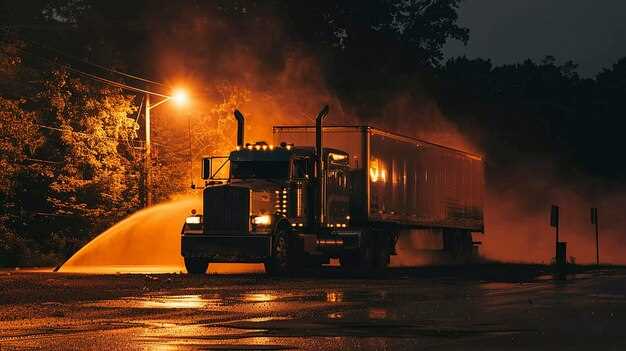

As we move further into the 2020s, diesel trucks continue to dominate the transportation and logistics sectors. Their robust performance, coupled with advancements in technology, has solidified their place as the preferred choice for many businesses. The increasing efficiency of diesel engines, combined with their impressive torque and hauling capacity, makes them indispensable for heavy-duty applications.
Furthermore, the cost-effectiveness of diesel trucks plays a critical role in their sustained popularity. Diesel fuel offers greater energy density compared to gasoline, allowing trucks to cover more miles on a single tank. This enhanced fuel efficiency not only reduces operational costs but also minimizes the frequency of refueling stops, which is essential for long-haul trucking operations.
Another significant factor contributing to the continued preference for diesel trucks in 2025 is the evolving regulatory landscape. While emissions standards have tightened, manufacturers have responded with cleaner diesel technology, such as advanced exhaust after-treatment systems. This innovation not only satisfies regulatory requirements but also helps to reduce the environmental impact of diesel trucks, making them a more sustainable option for fleet operators.
In conclusion, the combined advantages of performance, cost-effectiveness, and ongoing technological improvements ensure that diesel trucks will remain a popular choice in the transportation industry well into 2025 and beyond.
Fuel Economy and Cost Savings in Diesel Trucks

Diesel trucks are renowned for their impressive fuel economy, a key factor contributing to their popularity in 2025. The efficiency of diesel engines allows them to cover greater distances on a single tank compared to their gasoline counterparts. This distance advantage translates into fewer fill-ups and reduced downtime for operators, making diesel trucks a practical choice for long-haul transportation and logistics.
The cost savings associated with diesel fuel also play a significant role. Diesel fuel tends to be less expensive per gallon than gasoline in many regions, particularly when factoring in the superior mileage diesel trucks achieve. This combination of lower fuel costs and higher fuel efficiency results in substantial savings over time for fleet operators and independent truckers alike.
Moreover, advancements in diesel technology have further enhanced the efficiency of these vehicles. Modern diesel trucks are equipped with sophisticated engine management systems that optimize fuel delivery and combustion processes, thereby minimizing fuel consumption. This technological evolution not only contributes to cost savings but also helps in reducing carbon emissions, aligning with environmental sustainability goals.
In addition, many regions offer incentives for using diesel trucks due to their efficiency and lower emissions compared to older models. These incentives can come in the form of tax breaks or reduced registration fees, adding an extra layer of financial benefit for businesses that opt for diesel-powered vehicles.
Overall, the combination of superior fuel economy, lower operating costs, and technological advancements solidifies diesel trucks as a cost-effective solution for both small businesses and large transport companies in 2025.
Advancements in Diesel Engine Technology and Performance

The diesel truck industry has witnessed significant advancements in engine technology and overall performance, contributing to the growing popularity of diesel vehicles in 2025. These developments focus on improving efficiency, reducing emissions, and enhancing power delivery, making diesel engines more appealing for a wide range of applications.
One of the primary advancements is the implementation of common rail fuel injection systems, which allow for precise control of fuel delivery. This technology enables multiple injections per cycle, improving fuel atomization and combustion efficiency. As a result, modern diesel trucks achieve better fuel economy and reduced particulate emissions.
Moreover, turbocharging has become increasingly sophisticated, offering significant improvements in power output without compromising efficiency. Advanced twin-turbo systems can optimize engine performance across various speed ranges, ensuring that trucks deliver ample torque and horsepower when needed, especially during heavy-load scenarios.
Additionally, the integration of exhaust aftertreatment technologies such as selective catalytic reduction (SCR) and diesel particulate filters (DPF) has greatly enhanced emission control. These systems effectively reduce nitrogen oxides (NOx) and particulate matter, aligning diesel trucks with stringent environmental regulations while maintaining strong performance metrics.
Furthermore, the rise of smart engine management systems contributes to real-time performance optimization. These systems analyze driving patterns and environmental conditions to adjust fuel injection and turbocharging algorithms dynamically. Such adaptability ensures that diesel trucks not only perform at peak efficiency but also reduce wear and tear on components, enhancing their longevity.
The emergence of hybrid diesel systems represents another frontier in engine technology. Combining diesel engines with electric powertrains allows trucks to benefit from reduced fuel consumption during city driving and improved torque delivery during acceleration. This integration supports the move toward sustainability without sacrificing the advantages of traditional diesel power.
In conclusion, the advancements in diesel engine technology and performance have solidified the role of diesel trucks in the transportation sector. With innovations focused on efficiency, emissions reduction, and enhanced capability, the diesel truck market is set to continue thriving in 2025 and beyond.
Environmental Regulations and Diesel Truck Adaptations
The increase in popularity of diesel trucks is closely linked to evolving environmental regulations that necessitate cleaner and more efficient vehicles. In 2025, stringent emission standards have compelled manufacturers to innovate and adapt their diesel technology, resulting in vehicles that are both powerful and environmentally friendly.
One significant adaptation has been the implementation of advanced exhaust after-treatment systems, including selective catalytic reduction (SCR) and diesel particulate filters (DPF). These technologies drastically reduce nitrogen oxide (NOx) and particulate matter emissions, making modern diesel trucks compliant with regulations while maintaining high performance.
Further, manufacturers have invested in optimizing engine efficiency through techniques such as turbocharging and direct fuel injection. This not only enhances fuel economy but also minimizes harmful emissions, thus bolstering the popularity of diesel trucks among fleet operators looking to meet tough regulatory requirements without sacrificing performance.
The use of renewable diesel and biodiesel blends has also gained traction, offering an eco-friendlier alternative that retains the benefits of traditional diesel engines. As a result, many companies now view diesel trucks as a viable solution for sustainable transportation, aligning business objectives with environmental goals.
In summary, the adaptations prompted by environmental regulations have reinforced the popularity of diesel trucks in 2025, demonstrating that it is possible to blend heavy-duty functionality with ecological responsibility.